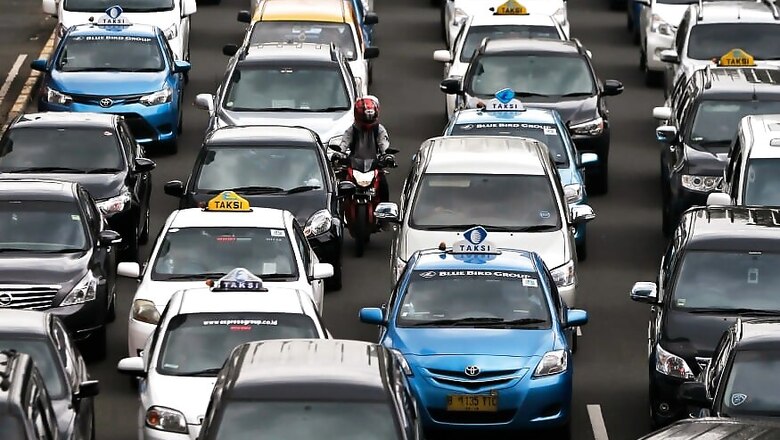
views
Beijing's municipal government today said it will further reduce new car sales in a bid to reduce traffic congestion and air pollution in the Chinese capital. The quota to buy new cars will be slashed by a third starting next year, it said.
Currently, Beijing allocates 150,000 license plates for new cars every year, and that number will be reduced to 100,000 in 2018, according to a new regulation. Beijing residents apply for new car license plates through a lottery-style bidding system. The system was introduced in 2011 with an aim to cut pollution and ease traffic jams in the smog-prone metropolis. Of the annual quota of 100,000, 60 percent are for new energy cars and the rest are for fossil-fuel vehicles. Beijing has registered a total of 137,800 electric cars.
The city has already announced plans to set up 1,895 charging ports for electric cars as part of a research study to work out a timetable to phase out petrol and diesel vehicles.
The capital aims to control the total number of vehicles to around 6.3 million by the end of 2020. From 2010 to 2016, the number of cars in Beijing grew by an annual average of 3.23 percent, while the length of roads only grew by 0.66 percent every year.
"Rapid growth of private cars has plunged the city in perennial congestion. It is necessary for the number of cars to be limited," Xu Kangming, an expert on urban transport told state-run Xinhua news agency.
China has also announced a ban on manufacture and sale of cars running on traditional fuels in the coming years. In order to improve traffic conditions, Beijing will increase spending on its public transit system. By 2020, Beijing's metro lines will total 900 kilometres, Rong Jun, deputy director of Beijing Municipal Commission of Transport said.
Also Watch: All-New Volvo XC60 | First Drive Review | Cars18



















Comments
0 comment